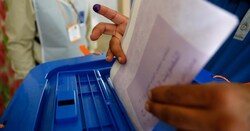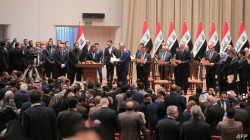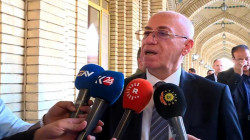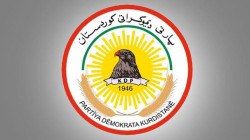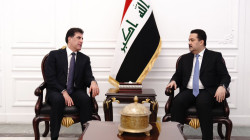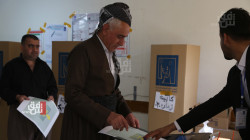KDP stands firm: Advocating for fairness in Kurdistan Parliament elections
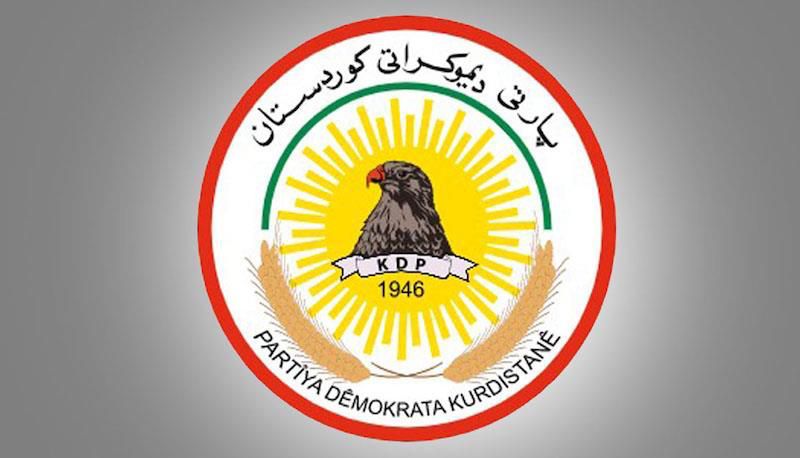
Shafaq News / The Kurdistan Democratic Party (KDP) denied any opposition to the upcoming Kurdistan Parliament elections, emphasizing its support for transparent and fair elections that safeguard the rights of the Kurdish people.
In a statement released by the KDP parliamentary bloc, they expressed astonishment at statements issued by certain political blocs regarding the parliamentary elections in the Region.
The KDP reaffirmed its "historical commitment to democratic principles," tracing back to 1991 when President Masoud Barzani declared the "transition from revolutionary legitimacy to constitutional and democratic legitimacy through elections."
Highlighting its electoral track record, the KDP highlighted its "consistent participation in elections since 1992, reflecting confidence in its members, supporters, and Kurdish nationalists."
Addressing recent criticisms, the KDP clarified its "continuous call for elections over the past two years, contrasting it with the opposition from certain parties, particularly those now issuing statements."
The party stressed its stance in favor of elections while ensuring Kurdish popular will and distancing from "pre-formulated agendas."
The KDP firmly advocated for inclusive elections that respect the rights of all components, rejecting discrepancies between the representation of Turkmen, Assyrian, and Chaldean communities in the Iraqi Parliament compared to their representation in the Kurdistan Parliament.
Concluding, the KDP called for "transparent elections with broad participation from all components, urging the United Nations mission, international community, and international observers to enhance monitoring efforts, avoid premature imposition of will or results, and ensure a fair distribution."
Earlier this evening, The Patriotic Union of Kurdistan (PUK) rejected what it described as a "unilateral attempt" to postpone the Kurdistan Parliament elections, deeming it a "major blow" to the political process.
PUK’s Political Bureau decided to take comprehensive legal, political, and diplomatic measures against the illegitimate attempts to postpone the upcoming elections.
It warned of this "dangerous development", emphasizing that any attempt to postpone the elections, in addition to being contrary to the decisions of the Federal Court and the procedures of the Independent High Electoral Commission, would also deal a major blow to the political process. "It would disregard democratic power exchanges and the reputation of Kurdistan Region's institutions and the legitimacy of the current Regional Government, which is currently serving as an interim government."
The Political Bureau considered "attempts to postpone the elections as an affront to democratic processes with no justification other than the narrow interests of those avoiding the electoral process. They seek an unfair means to secure a predetermined majority. Therefore, we will never be part of this conspiracy and reject any meeting to postpone the elections."
"We will inform friends of the political process in Kurdistan, Iraq, the international community, and the United Nations of our commitment to democracy through official memoranda and frank, serious meetings."
On Tuesday, federal Prime Minister Mohammed Shia Al-Sudani directed the Independent High Electoral Commission (IHEC) in Iraq to hold Kurdistan Region Parliament elections "with everyone's participation" following an important visit by the Region's President Nechirvan Barzani to Baghdad.
The Presidency of the Region indicated that Al-Sudani, after President Barzani visited Baghdad, met with the IHEC and emphasized the importance of holding elections in Kurdistan amidst political consensus. "The participation of all community components from Iraqi spectrums in the Region is essential to ensure the principles of justice and equality in executing this mandate."
It is noteworthy that the Kurdistan Democratic Party (KDP) had announced on March 18th, its boycott of the parliamentary elections in Kurdistan scheduled for June unless the political parties in Baghdad comply with the agreements that led to the formation of the Iraqi government.
Earlier, the KDP reiterated its commitment to boycotting Kurdistan’s Parliament elections unless its observations regarding the electoral procedures and mechanisms are addressed to ensure the interests and rights of the Kurdish people.
KDP’s decision came following controversial decisions by the Federal Supreme Court that a specific article concerning the minority quota in KRG's provincial election law was deemed "unconstitutional."
This article, part of a law initially adopted in 1992 and revised in 2013, mandates 11 quota seats in the Regional parliament for ethnic and religious minorities.
Furthermore, the verdict stated that Iraq's Independent High Electoral Commission will take over from KRG's electoral commission to supervise parliamentary elections, which are anticipated to occur next June.
The decision also divided Kurdistan into four constituencies, Al-Sulaymaniya, Erbil, Duhok, and Halabja, instead of the single-constituency system in previous elections.
The court ruling stemmed from legal actions by Kurdish political factions opposed to the KDP's dominance in politics within the Kurdistan Region.
Notably, one of the main issues that could empower the federal government is the political division in Kurdistan.
KDP predominantly governs the Region, yet the PUK wields considerable influence in the Region's political and military realms.
Although the KDP and PUK are partners in the ruler coalition, the State Administration (SAC), their relationship has been strained for years, primarily concerning power and revenue distribution issues.
